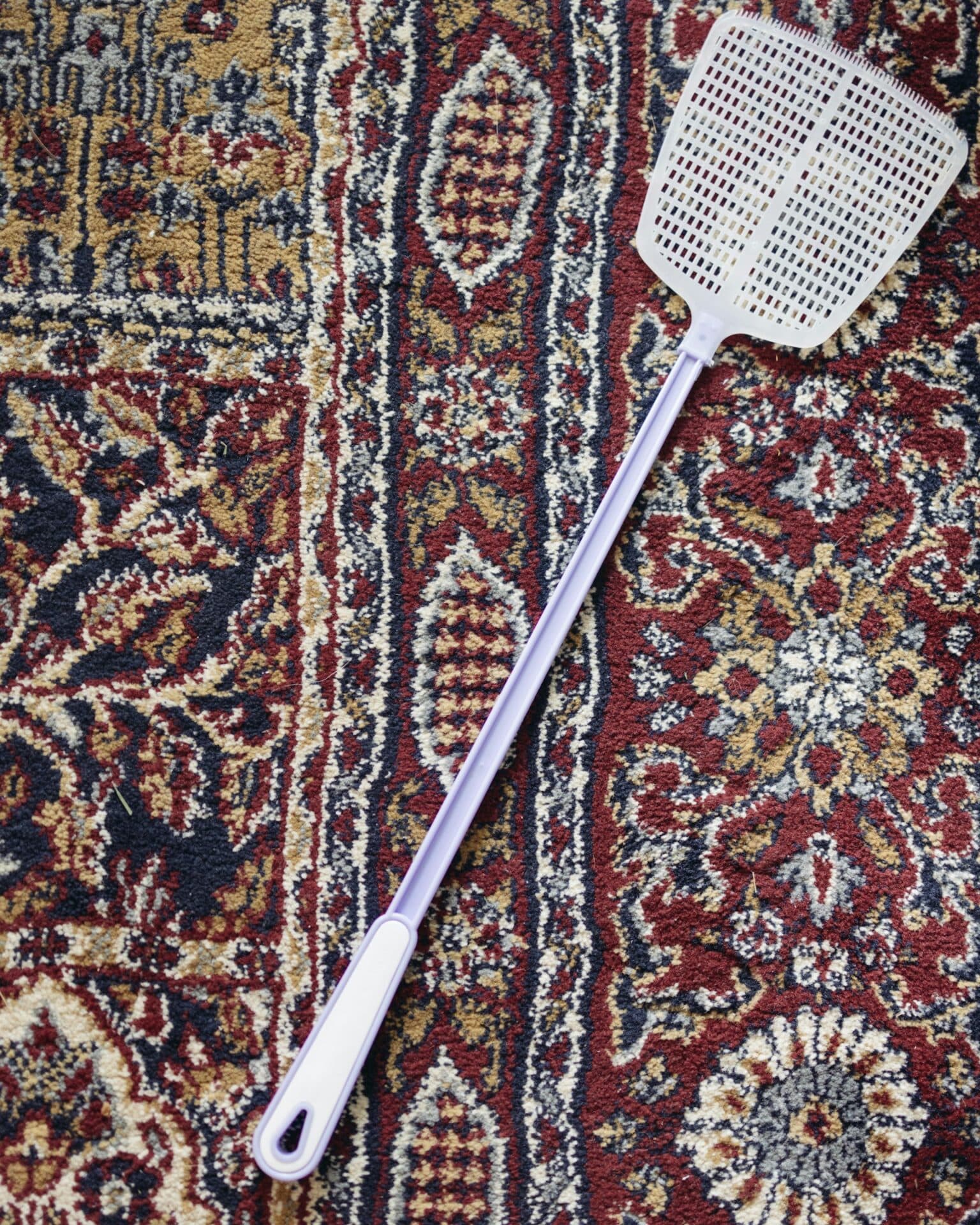Today the weather turned warm. From sub-zero to over ten degrees in a single day. I thought I’d open the windows, let in some fresh air—only to find several flies buzzing inside within minutes. Spring hadn’t arrived, but the flies had. Had they hatched overnight? How could they multiply so fast?
In recent years, I’ve noticed more and more flies in Germany. For a long time, I never saw a flyswatter here—those familiar tools of Chinese households. But two summers ago, I bought an electric one, and found myself using it nearly every day. It wasn’t just flies. Mosquitoes too. I used to think one advantage of German summers was the lack of mosquitoes. But now, people increasingly complain. I’ve been spared so far, but I’ve heard tales of southern France where the mosquitoes are as vicious as Thailand’s—biting until skin swells and burns.
Another mystery: the spread of head lice. Ever since my child entered kindergarten, we’ve received occasional notices: someone in the class has lice, please check your child. When I spoke to local parents, they were adamant—lice have nothing to do with personal hygiene. That shocked me. Back in my childhood, if a kid had lice, the assumption was always unwashed hair, dirty playmates. But maybe the Germans are right: it’s not just personal hygiene, but broader environmental conditions that matter. Still, if that’s true, why is lice virtually unheard of in modern China?
Back in the 1990s, my mother’s colleague visited West Germany and returned full of admiration: “So clean! After it rains, you can walk around in white sneakers and they stay spotless.” That Germany, it seems, is gone. Now, walk down the street with a conservative older German, and you’ll hear them mutter in dismay: “Look at all this garbage. How did it get so dirty?”
Occasionally, you see volunteers picking up trash—elderly folks with big bags and long tongs, quietly collecting litter. Some younger ones join too. But more than a cleanup effort, it feels like a performance of principle.
Old-school Germans didn’t take off their shoes indoors. But younger generations do—most people I know leave their shoes at the door, whether guests or hosts. Maybe it’s a response to the dirt outside.
So why has Germany gotten dirtier? I haven’t seen any serious public debate on this. But I can guess: if there were such a debate, someone would inevitably blame immigrants. Blaming newcomers is always the easiest outlet for collective frustration.
I remember one afternoon when I went to dispose of glass bottles. In Germany, bottles and paper must be sorted and taken to designated recycling points, which are conveniently located in residential areas. On this day, the paper bin was overflowing. Someone had still tried to stuff in more, and loose papers had spilled onto the ground. As I focused on dropping my bottles into the glass bin, a dog suddenly appeared, unleashed and barking. An old woman followed, scowling. “I knew it! Always you foreigners!” I was momentarily stunned, then realized she was blaming me for the paper mess. I shouted back, partly out of fear of the dog, partly out of anger: “Control your dog! Are you out of your mind?” I was glad I reacted immediately—better than swallowing the humiliation and stewing in it later.
Honestly, I think it’s not about who’s “foreign” or not. Maybe it’s just that when a society has been affluent for too long, people become lazy. Or rather, more people get used to not caring. Once, at a Starbucks in Berlin, I was quietly sipping coffee when I saw a rat dart from under one sofa to another. I rushed to the counter and told the staff. The barista didn’t even look up. “Oh,” she said. “And?” I felt like the weird one.
Another time, early morning, I was walking down a food street in the city center. Not many people were out yet. A small rat poked its head out from a shop door and paused on the sidewalk. I froze. Across the street, a burger shop employee was having a cigarette. I pointed to the rat. He glanced, shrugged, and said, “Not our store.” Then went back to his smoke. That detached, serene expression—almost Zen—made me laugh.
They say that in the ’80s and ’90s, Sundays in Germany were for church and afternoon walks. Families would dress up, stroll through clean parks, breathe fresh air. That Germany? Perhaps it’s not coming back.













Responses (0)